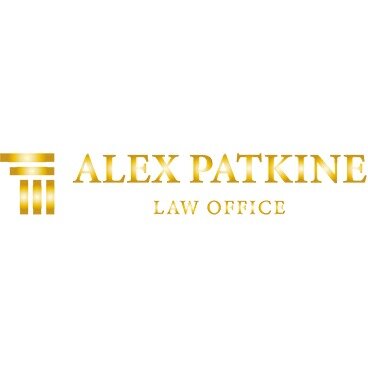Best Labor Law Lawyers in Tel Aviv
Share your needs with us, get contacted by law firms.
Free. Takes 2 min.
List of the best lawyers in Tel Aviv, Israel
About Labor Law in Tel Aviv, Israel
Labor Law in Tel Aviv, Israel, like the rest of the country, is designed to regulate the relationship between employers and employees. It encompasses a wide variety of issues including employment contracts, wages, working hours, dismissal procedures, workplace safety, and more. The main objective is to safeguard the rights of workers while ensuring equitable and fair treatment within the workplace.
Why You May Need a Lawyer
There are numerous situations in which you might require legal assistance in the field of Labor Law. Here are a few common scenarios:
- Employment Contracts: You may need a lawyer to review or draft an employment contract to ensure its terms are fair and lawful.
- Unfair Dismissal: If you believe you have been unjustly terminated, a lawyer can help you understand your rights and seek appropriate remedies.
- Discrimination: If you face discrimination based on gender, age, race, religion, or any other grounds, legal advice can help you address the issue.
- Workplace Harassment: A lawyer can assist in addressing any form of workplace harassment, including sexual harassment.
- Wage Disputes: Disputes regarding unpaid wages or incorrect salary calculations may require legal intervention.
- Worker's Rights: Lawyers can provide advice on a wide range of worker's rights issues such as maternity leave, sick leave, and working conditions.
Local Laws Overview
Labor laws in Tel Aviv, Israel are governed by several key pieces of legislation, including:
- Employment Agreements Law (1957): Mandates that employers provide written employment agreements.
- Hours of Work and Rest Law (1951): Regulates working hours, overtime, and rest periods.
- Protection of Wages Law (1958): Ensures timely and full payment of wages.
- Minimum Wage Law (1987): Establishes the minimum wage standards.
- Equal Opportunities Law (1988): Prohibits discrimination in employment.
- Work and Rest Hours Law (1951): Specifies working hours, rest days, and overtime compensation.
- Annual Leave Law (1951): Entitles employees to paid annual leave.
- Severance Pay Law (1963): Details conditions under which severance pay is mandatory.
Frequently Asked Questions
What is the legal minimum wage in Israel?
The minimum wage in Israel is updated periodically. As of 2023, the minimum wage for a full-time employee is set around 5,300 ILS per month, but the exact figure can vary. It is important to verify with current regulations.
Are employers required to provide written employment contracts?
Yes, according to the Employment Agreements Law (1957), employers are mandated to provide written employment agreements that outline the terms and conditions of employment.
Can an employer dismiss an employee without reason?
No, an employer must have a justified reason for dismissal and follow specific procedures, including a pre-dismissal hearing, as mandated by Israeli labor laws.
What are the legal working hours in Israel?
The standard workweek is 43 hours, spread over 5 or 6 days. Any hours worked beyond this are considered overtime and are subject to additional compensation.
What is considered unlawful discrimination in the workplace?
Discrimination based on gender, age, race, religion, nationality, or any other protected characteristic is considered unlawful under the Equal Opportunities Law (1988).
How is overtime compensated in Israel?
Overtime work is generally compensated at a rate of 125% for the first two hours and 150% for any additional hours worked beyond regular working hours.
What rights do pregnant employees have?
Pregnant employees are entitled to maternity leave, protection from dismissal during pregnancy and maternity leave, and other benefits as outlined in the Women's Employment Law (1954).
Can employees request flexible working hours?
While there is no legal obligation for employers to provide flexible working hours, employees can negotiate such terms individually.
What should I do if I experience workplace harassment?
If you experience workplace harassment, it is advisable to document the incidents and report them to your employer. Seeking legal advice can also help in addressing the issue appropriately.
Are there legal protections for whistleblowers in Israel?
Yes, the Protection of Employees (Exposure of Offenses of Unethical Conduct and Improper Administration) Law (1997) provides legal protection for employees who expose wrongdoing in the workplace.
Additional Resources
Here are some resources, governmental bodies, and organizations that can be helpful if you need legal advice in the field of Labor Law:
- Israeli Ministry of Labor: Offers information and resources on labor rights and regulations.
- Histadrut (General Organization of Workers in Israel): Provides support and representation for workers in various industries.
- The Equal Employment Opportunities Commission: Addresses issues of discrimination in the workplace.
- Legal Aid Department: Offers free or subsidized legal assistance for those who qualify.
- Bituach Leumi (National Insurance Institute): Provides various social security benefits, including for workers' rights.
Next Steps
If you need legal assistance in the area of Labor Law, consider taking the following steps:
- Document Everything: Keep detailed records of any incidents, employment contracts, communications, and other relevant documents.
- Seek Initial Advice: Consult with a labor lawyer to understand your rights and options. Many offer initial consultations free of charge.
- File a Complaint: If applicable, file a formal complaint with relevant authorities such as the Equal Employment Opportunities Commission or the Ministry of Labor.
- Negotiate: Sometimes issues can be resolved through negotiation or mediation with your employer, facilitated by your lawyer.
- Legal Action: If necessary, your lawyer can help you file a lawsuit or take other legal actions to protect your rights.
Lawzana helps you find the best lawyers and law firms in Tel Aviv through a curated and pre-screened list of qualified legal professionals. Our platform offers rankings and detailed profiles of attorneys and law firms, allowing you to compare based on practice areas, including Labor Law, experience, and client feedback.
Each profile includes a description of the firm's areas of practice, client reviews, team members and partners, year of establishment, spoken languages, office locations, contact information, social media presence, and any published articles or resources. Most firms on our platform speak English and are experienced in both local and international legal matters.
Get a quote from top-rated law firms in Tel Aviv, Israel — quickly, securely, and without unnecessary hassle.
Disclaimer:
The information provided on this page is for general informational purposes only and does not constitute legal advice. While we strive to ensure the accuracy and relevance of the content, legal information may change over time, and interpretations of the law can vary. You should always consult with a qualified legal professional for advice specific to your situation.
We disclaim all liability for actions taken or not taken based on the content of this page. If you believe any information is incorrect or outdated, please contact us, and we will review and update it where appropriate.
















